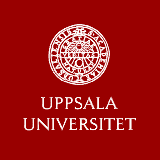Kalendarium
Högre seminarium24 okt 2018 kl. 14:15 – 16:30
Lokal: Gustavianum
Rogier Chartier (Collège de France)
Materiality of the Texts and Reading Practices
Professor Chartier is since 2007 holding the chair "Écrit et cultures dans l’Europe moderne" (Writings and Cultures in Modern Europe) at Collège de France. He is an historian by training, agrégé in 1969. Since the 1970s he has been a central representative of what was at that time called la nouvelle histoire, i.e. the third generation of the Annales school, emphasising the history of culture, mentalities and representations. His main institutional platform was for many years the Centre de Recherches Historiques at l’École des Hautes Études en Sciences Sociales, where he has since the 1980s served as Directeur d’Études (research director, to be compared to a full professorship). This centre, directed by M. Chartier 1982–1984, is one of the world’s largest and most well recognised historical research milieus and the main institutional basis for the Annales school, which has exerted a most significant worldwide influence not only within the historical disciplines in a narrow sense but also within many other branches of the humanities and social sciences. For further information on M. Chartier’s CV see https://www.college-de-france.fr/site/roger-chartier/.
M. Chartier’s own research covers vast domains of social and cultural history – see the remarkable publication list at
https://www.college-de-france.fr/site/roger-chartier/bibliographie.htm – but a centre of gravity has been his works on the social and cultural history of printed publications and of reading during different ages, from the early modern age up until today. His focus of attention has not been books and other publications as such but rather the readers’ responsiveness to the written word, i.e. the transformations of their perception and reception abilities in different historical situations and different social circumstances. Thus, M. Chartier is an eminent historian of the kind that that stands for a decisively sociological orientation.
For more information on M. Chartier's sojourn contact Donald Broady
